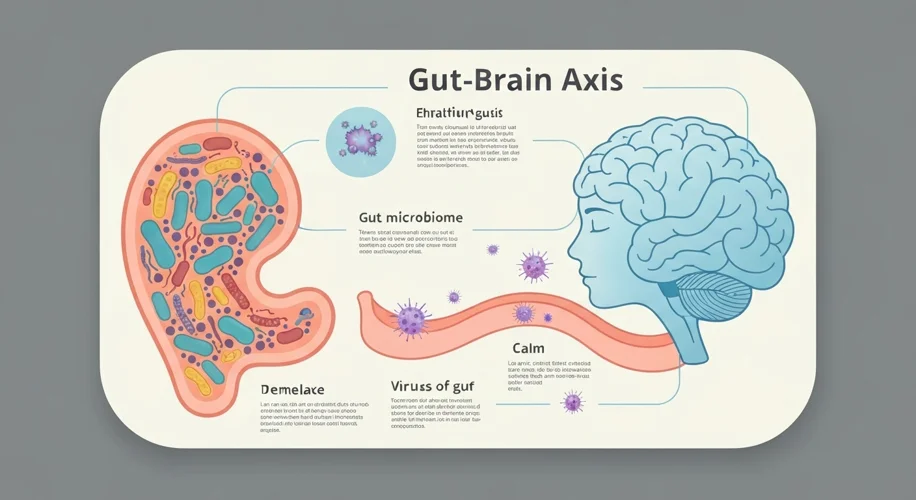It’s a common experience many of us have noticed: something about our gut health just hasn’t felt the same since we navigated the COVID-19 pandemic. As someone with a background in environmental and biological science, I’m fascinated by these interconnected health changes. Let’s dive into why your gut might be feeling a bit off, and what the science tells us.
The Gut-Brain Connection: More Than Just a Feeling
For years, scientists have been exploring the intricate relationship between our gut and our brain, often referred to as the gut-brain axis. This isn’t just about digestion; it’s a complex two-way communication system. Your gut houses trillions of microorganisms – the gut microbiome – which play a crucial role in everything from nutrient absorption to immune function, and even influencing our mood and cognition. Think of them as tiny helpers working tirelessly behind the scenes.
How Viruses Like COVID-19 Can Impact Your Gut
When a virus like SARS-CoV-2 enters the body, it doesn’t just target the lungs. Evidence suggests it can affect various systems, including the gut. Here’s how:
- Direct Viral Effects: The virus itself can potentially infect cells in the gastrointestinal tract, disrupting normal functions.
- Immune Response: Our body’s powerful immune response to the virus can lead to inflammation, which can also impact the delicate balance of the gut microbiome.
- Changes in Lifestyle: During illness or periods of isolation, our routines often change. This can include shifts in diet, increased stress levels, and reduced physical activity – all factors known to influence gut health.
- Antibiotic Use: In some cases, antibiotics might be used during illness, which can further alter the gut microbiome’s composition.
The Ripple Effect: What It Means for You
When the gut microbiome is disrupted, it can lead to a range of symptoms beyond digestive upset. Some people report changes in energy levels, mood, or even cognitive function – sometimes called ‘brain fog.’ This is where the gut-brain axis comes into play again. An imbalanced gut can send different signals to the brain, potentially affecting how we feel.
Did you know that the gut microbiome produces many of the neurotransmitters, like serotonin, that regulate mood? So, changes in your gut bacteria can indeed influence how you feel mentally.
Looking Forward: Long-Term Well-being
Understanding these connections is crucial for our long-term well-being. While the initial illness may pass, the effects on our internal ecosystems can linger. Researchers are actively studying these long-term impacts to better understand how to support recovery and resilience.
This is why I’m so passionate about looking at the science behind our health. It’s not just about treating symptoms; it’s about understanding the complex biological systems at play and how we can nurture them. Paying attention to our gut health, perhaps through balanced nutrition and stress management, could be an important step in supporting our overall recovery and continued well-being.

